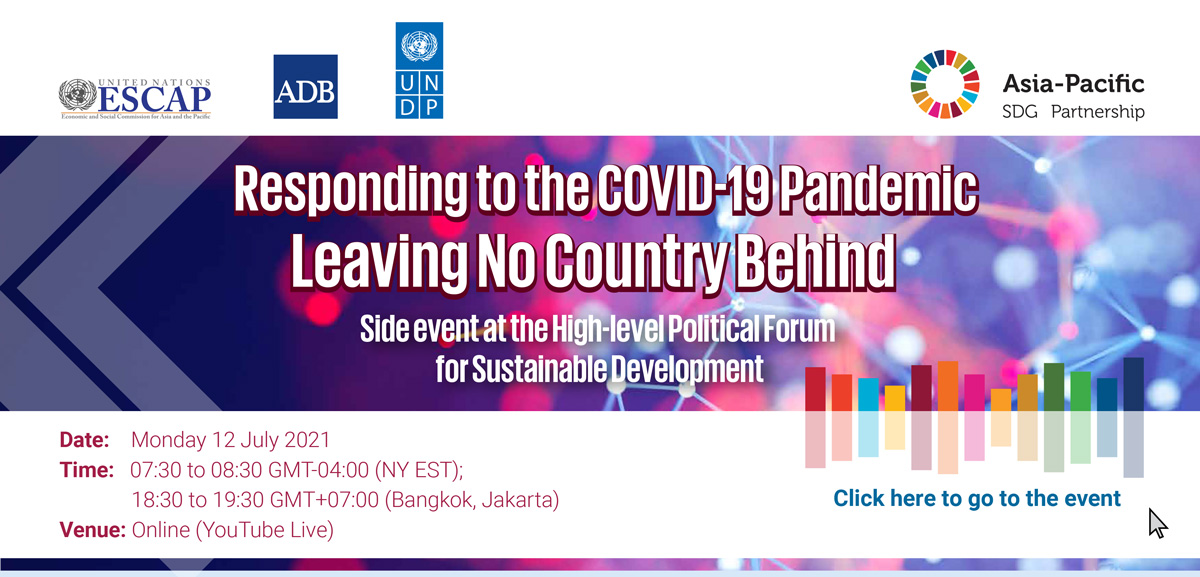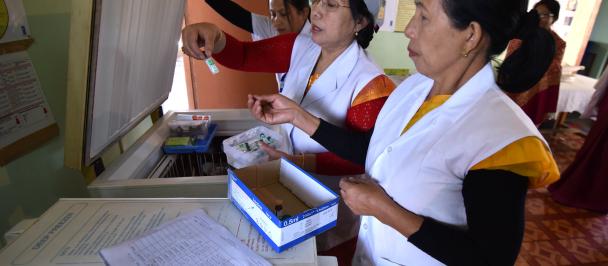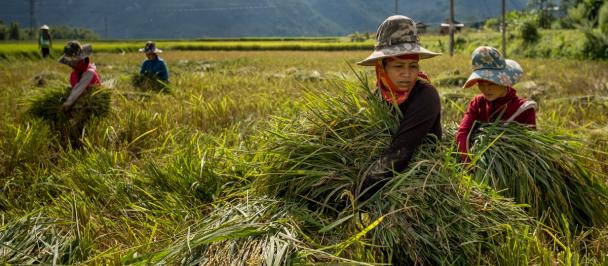Statement by Kanni Wignaraja at the High-Level Political Forum for Sustainable Development in 07.12.2021
__
Let us consider a piece of evidence – last year, for the first time in Earth’s 4.5-billion-year history, the weight of human-made materials exceeded that of all life on Earth. Our scientists have been speaking to this burden, and to pandemics that will be endemic. We are there.
COVID-19 vaccine nationalism is a manifestation of this malady. New pandemics will emerge so long as planetary and social imbalances reinforce each other. It means the current crisis extends and there will be future ones.
Economic growth can happen through more measured, just and sustainable means. Without this rush to exploit. UNDP has argued for this through its human development approach, with an index that is now planetary adjusted. There are means to change both approach and metrics.
Our joint Report from ESCAP, ADB and UNDP, advances the need for bold domestic policies and greater regional cooperation in areas of digital connectivity, investment in human well-being, and development finance. Three messages with a different emphasis:
First, we must change direction on the under-provisioning of global and regional public goods, like access to the COVID-19 vaccine or digital connectivity. Digital access is emerging as the new frontier of augmented human capabilities. Where the provisioning works, it allows people to connect to health services, ensure access to basic income and finance for enterprises, children continue to learn.
Often it does not happen. Then pre-existing digital divides between countries and groups grow deeper. These are inconvenient truths. The provisioning of public goods can be done in ways that protect the larger numbers. For those of you who remember – this is how we addressed smallpox. It can and must be done.
A second emphasis is to intentionally move responses away from discrete siloed approaches, to trust in the more interconnected and cross-sector. Hence, to work across institutions to problem-solve. This is tough to do, as it is not how we are set up or trained to think and act.
For example, countries and communities that are moving faster out of high polluting fossil fuels, that have introduced a decent minimum income, that have extended health services and insurance coverage for their people, that are educating all women and girls, that are protecting their forests, rivers and reefs - they have multiple institutions working together on these issues. We see it happening mostly at sub national levels. The national and global still has much to learn to break out of vertical constraints.
Third, we looked at differences in governance systems, as to what worked in more agile and anticipatory ways. Almost 80 percent of people concur that it is important to protect the planet. But only half say they are likely to take concrete actions to save it. There is a gap between what people value and want, and what they feel responsible for.
To close the gap between these socially desirable values and individual actions, it takes governance institutions, formal and informal, that can anticipate and deliver on policies that incentivize us to all act differently. What we tax, what we subsidize, it matters and helps change behavior. Such systems also work best where there is greater trust between people and public and private institutions.
I conclude with a perplexing thought - why were we not able to contain this coronavirus, as it escaped national boundaries, bounded across Asia and jumped across regions? Were we caught napping? Were our regional and global institutions not ready? We need enhanced multilateral and regional cooperation, to act faster and protect against such transboundary threats.
This pandemic is a once-in-a-century occurrence, hidden inside a once-in-an-epoch planetary staging event, as we exit the Holocene and entering the Anthropocene. The science is with us. So are the means through policy, capability, money and technology. However, it will take an amazing group of leaders with a vision beyond their own terms in office, be it in state, industry, multilateral entities and civil society, to bring it all together in a system- reboot that rebuilds differently.
Thank you.
_
Statement delivered at the "Responding to the COVID-19 Pandemic: Leaving No Country Behind" side event of the High-Level Political Forum for Sustainable Development.
- Download the report 'Responding to the COVID-19 Pandemic: Leaving No Country Behind' here.

 Locations
Locations


